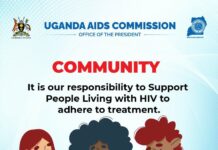Among them, the Access to COVID-19 Tools (ACT) Accelerator, launched in April, has shown results, according to WHO Director-General Tedros Adhanom Ghebreyesus, with nine vaccine candidates in the COVAX portfolio now advancing through Phase 2 or 3 trials.
The World Health Organization (WHO) has said that six months after first sounding the international alarm over COVID-19, it is now intensely focused on shepherding global vaccine candidates through the necessary trials.
Among them, the Access to COVID-19Tools (ACT) Accelerator, launched in April, has shown results, according to WHO Director-General Tedros Adhanom Ghebreyesus, with nine vaccine candidates in the COVAX portfolio now advancing through Phase 2 or 3 trials.
The portfolio, already the broadest in the world, is expanding, and Dr Tedris says that countries representing 70 per cent of the global population have registered or expressed interest in being part of the initiative. He was briefing reporters from Geneva on the latest developments in the management of the pandemic whose ripple effects are upending people’s lives globally.
In terms of therapeutics, he said the first proven therapy for severe COVID-19, dexamethasone, was announced in June and is now scaling up. More than 50 tests are in evaluation and new evidence has been generated around rapid antigen detection tests that could be game changing.
Stressing that the ACT Accelerator is the only global framework for ensuring the fair and equitable allocation of COVID-19 tools, he said that to succeed, it must be properly financed. And, he adds, the best bet is to do it together.
The International Monetary Fund (IMF) estimates the pandemic is costing USD 375 billion a month and predicts a USD 12 trillion cumulative loss to the global economy over two years. The G-20 group of leading economies alone has mobilized more than USD 10 trillion in fiscal stimulus, to treat and mitigate the consequences of the pandemic.
By contrast, funding the ACT Accelerator will cost a tiny fraction compared to the alternative, where economies retract further and require continued fiscal stimulus packages, Tedros said. He added that before spending another USD 10 trillion on the consequences of the next wave, the world will need to spend at least USD 100 billion on new tools, especially any new vaccines that are developed.
The most immediate need is USD 31.3 billion for the ACT Accelerator – the only up-and-running initiative that brings together all the global research and development, manufacturing, regulatory stipulations, purchasing and procurement needed, to end the pandemic.
To be sure, the development of vaccines is long, complex, risky and expensive, Tedros said, noting that the vast majority fail in the early stages. The world needs multiple vaccine candidates to maximize the chances of finding a winner that works.



